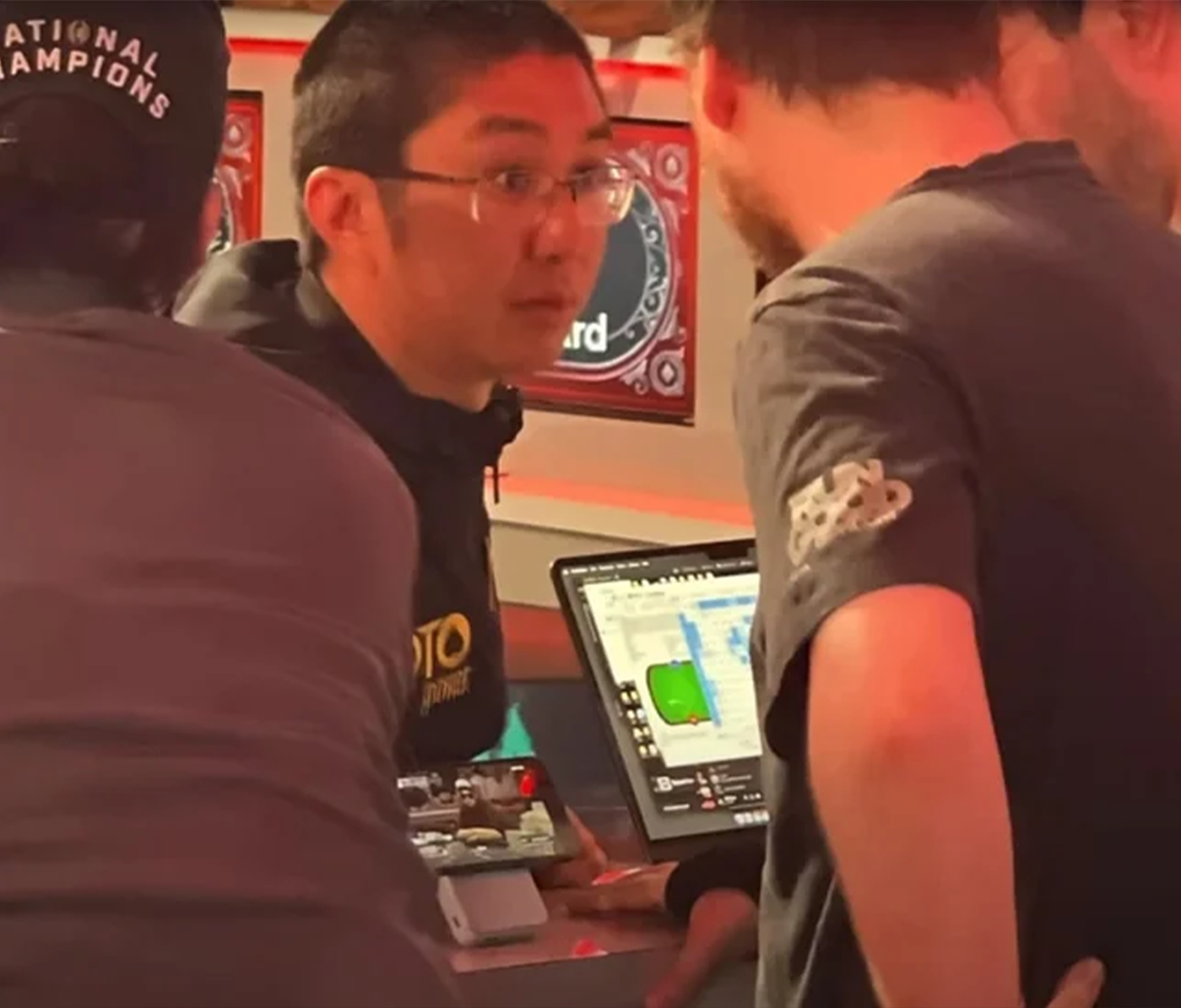If you’ve invested any time following the 2024 WSOP Main Event, you have likely heard about the latest controversy to rock the poker world. If not, let me catch you up in short.
Throughout the final table, including the heads-up portion of the Main Event, eventual $10 million winner Jonathan Tamayo was seen interacting with poker professionals Joe McKeehen and Dominik Nitsche who were sitting in the audience with a laptop in hand.
And while getting advice from a rail of supporters who were livestreaming the event is not new, the damning part came when the laptop was photographed as showing a poker solver app, which the WSOP had made numerous warnings about its use throughout the series.
Perhaps most concerning, immediately following the hand that secured the win – and the additional $4 million payout that came with it – cameras appeared to catch an earpiece coming out of Tamayo’s ear and into the waiting pocket of his supporters.

A lot has already been said about the situation, although the WSOP itself has understandably yet to issue a comment considering how serious of an issue it is and how large the ramifications may ultimately end up being.
Speaking of ramifications, the poker world seems to be divided on what exactly should be done about the allegations. With that in mind, let’s take a look at three potential responses by the WSOP and evaluate their validity.
Disqualification
In my opinion, since there was no hard rule in place by either the WSOP or gaming commission this year, apart from loudspeaker announcements about potential consequences for anyone using poker solvers in the tournament area, an outright disqualification seems somewhat heavy-handed, though it would set an unmistakable precedent to dissuade future rule breakers.
With that said, the one wrinkle in the argument to not disqualify is the earpiece situation, which, to me, seems far more nefarious. I don’t know how it would do so, but if the WSOP’s investigation led it to determine Tamayo was receiving help from the sideline during the match, a disqualification (and perhaps even an outright ban) would be the obvious answer.
Punishment
Seeing as the WSOP had indeed warned about potential consequences for the use of poker solvers, it would be well within its power to issue some sort of punishment, perhaps switching the heads-up payouts and crowning runner-up Griff the winner. This would also go a long way toward calming the critics and rehabbing the negative image of the event that many recreational players have been expressing in recent days since the story surfaced. And if the WSOP wanted to take an even more extreme measure such as giving Tamayo 9th-place money and moving everyone else up a spot, I don’t think that’d be a bad ruling either. If nothing else, it would send a signal that they’re taking the situation seriously.
Do Nothing
The truth is that in the age of hot takes and short attention spans, doing nothing is often the smartest business decision. Sure, you might alienate a handful of customers, but given enough time, it’s unlikely this event makes a dent to the WSOP’s brand, especially if they come back next year better prepared, with clearer rules and stronger enforcement in place. Because while this seems like a big event in our little poker bubble, the truth is most poker fans have either not even heard about the controversy or don’t actually care enough, from a functional perspective, to change their poker behaviors one way or another.
Ultimately, as a poker player and WSOP fan myself, I’d be happy to see the WSOP take option #2 – punishment (with a potential upgrade to #1 – disqualification – if they could somehow confirm the use of an earpiece), but as an experienced social consumer, I wouldn’t be surprised to see the Caesars owned WSOP essentially let this situation play itself out, make the necessary changes for next year, and expect that the vast majority of players will show up to WSOP 2025 regardless.
Case in point, I’ll see you there.

